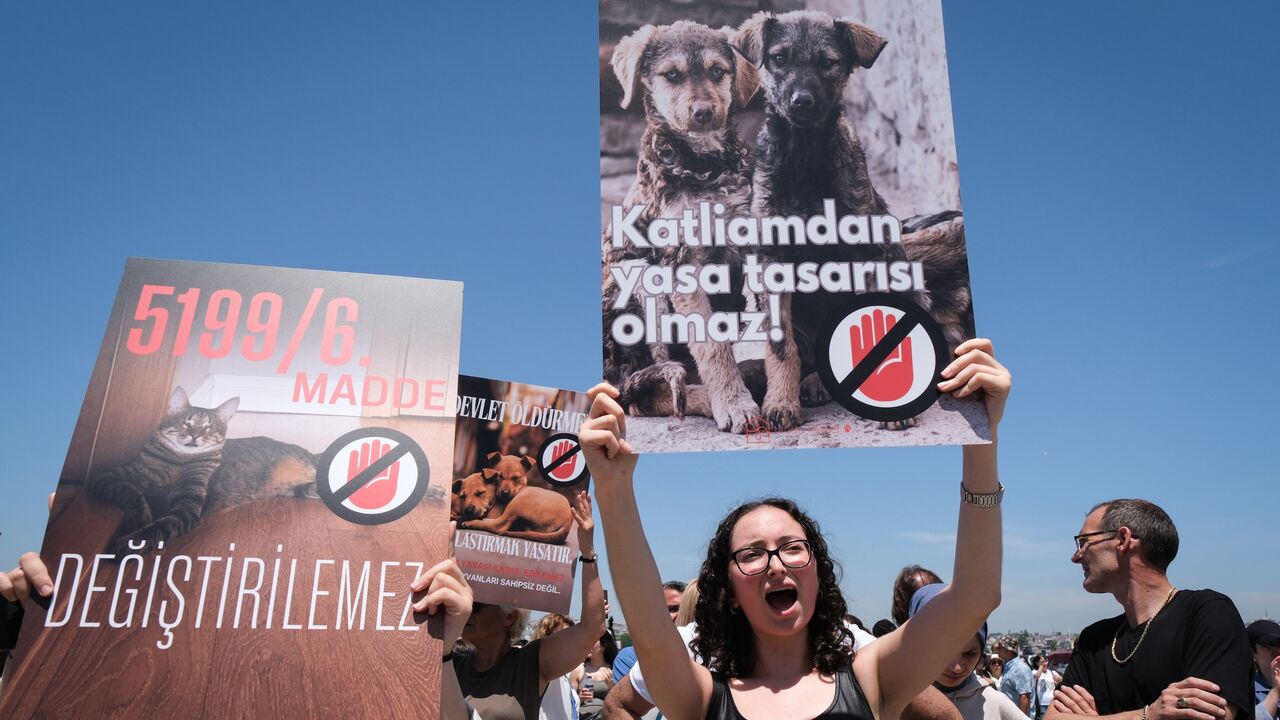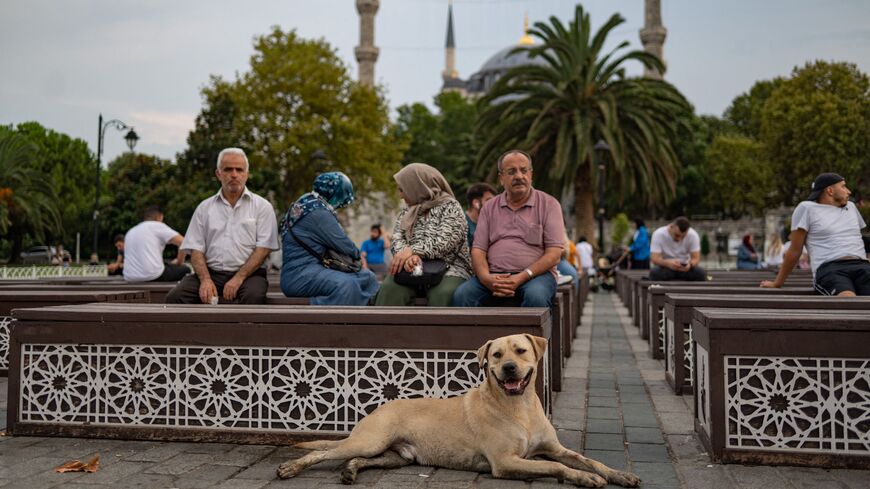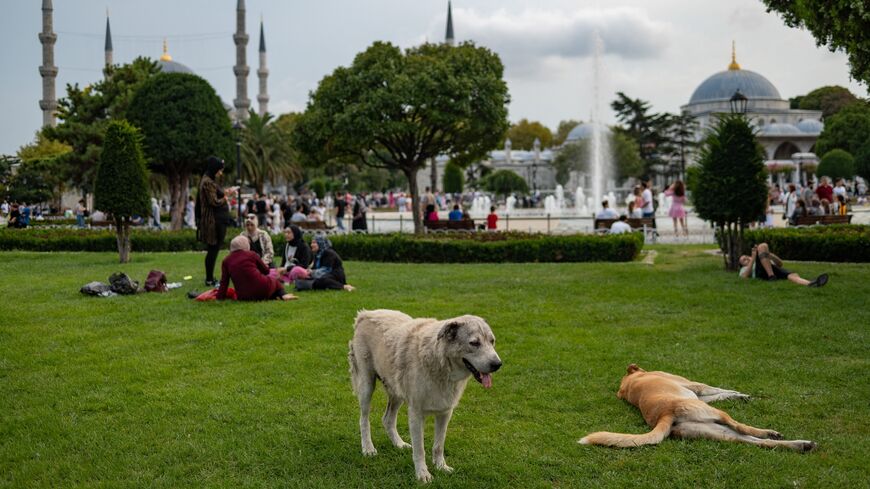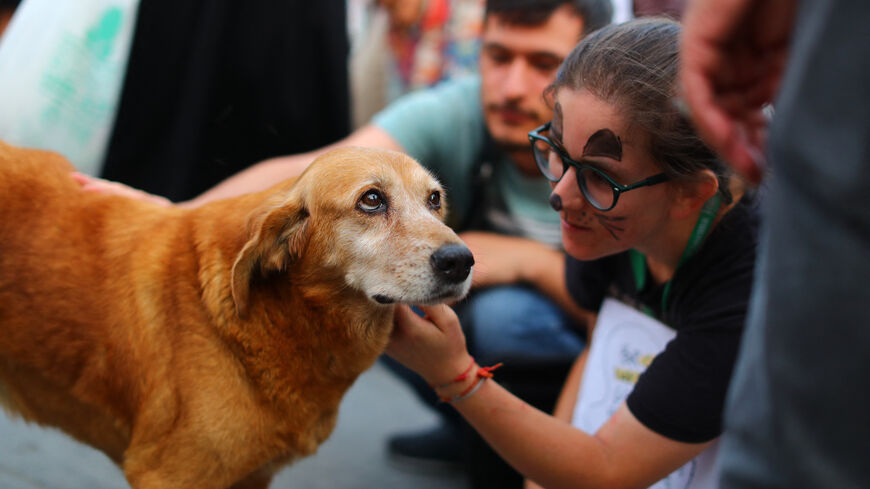Turkey passes controversial stray dog bill amid fears of imminent mass culling
Activists fear the bill will lead to massacres of the country's roughly 4 million stray dogs and government critics are concerned it will be used to coerce opposition-controlled municipalities.

ANKARA — Turkey’s parliament passed a controversial bill aimed at regulating stray dogs early Tuesday, sparking fears that a mass culling of the country's millions of street canines may be imminent and raising concerns from government critics about increasing pressure on opposition municipalities to implement the law.
The legislation passed by a vote of 275 to 224 at around 3:50 a.m. local Turkey time after two days of intense debate. Supporting the draft law were members of Turkish President Recep Tayyip Erdogan’s ruling Justice and Development Party (AKP) as well as their ultranationalist allies.
In the lead-up to the vote, animal rights activists held dozens of protests in several cities at home and abroad, pressing the government to withdraw the bill. Millions of social media users urged the government to abandon its insistence on the legislation. Erdogan remained defiant, pledging last week to pass the bill before the parliament began its summer recess on Tuesday.
Opposition parties have dubbed the bill the “massacre law,” but the government has dismissed the criticism.
“Stray dogs have become a problem that restricts the lives of all our people, especially children and the elderly, and it must be solved urgently,” AKP lawmaker Havva Sibel Soylemez said.
“Human life is our most valuable priority,” she went on amid objections from the floor.
More than 100 people, including 50 children, have died over the past two years as a result of dog attacks or in traffic accidents caused by stray dogs, according to a report released by the Safe Streets and Defense of the Right to Life Association in June, which is campaigning for the removal of all stray dogs from the streets.
What the bill does
The bill will force the country’s local municipalities to collect the country’s estimated four million stray dogs from the streets, neuter them and place them in shelters. According to the text of the bill, only dogs with aggressive behaviors or infectious diseases will be euthanized.
Underscoring that the country’s shelter capacity currently is only around 100,000, animal rights activists and civil society groups warn that overcrowded shelters will become unmanageable and force the dogs to turn aggressive, potentially leading to mass cullings amid a lack of oversight mechanisms.
The bill sets 2028 as the deadline to complete the construction of all shelters, but it fails to address what will happen to the stray dogs that would be removed from streets.
Ozgur Ozel, leader of the main opposition Republican People’s Party (CHP), announced that the party's municipalities will not enforce the law. Nine provincial municipalities in the country’s Kurdish-majority southeast are led by mayors of the pro-Kurdish Peoples’ Equality and Democracy Party, which has also pledged to resist the legislation.
The CHP is also expected to take the bill to the country’s top appeals court.
Government critics also argue that the ruling party would likely use the bill as a tool to increase pressure on the municipalities controlled by the opposition parties. Under the new law, municipality officials who fail to fulfill their responsibilities could face jail sentences of up to two years. Most of the urban centers where the stray dog problem is most acute are led by CHP mayors.
“With this law, a witch hunt will be conducted against opposition municipalities,” CHP lawmaker Gokce Gokcen Gol told the floor. “You seek to pit the public against the opposition municipalities with this law. … You want to take revenge on the municipalities you couldn’t reclaim on March 31,” she said. The AKP experienced a historic defeat in those local elections, losing its highest vote share to the main opposition.
Since the 2019 local elections in which the AKP lost the major metropolises, including Ankara and Istanbul, rights groups have been accusing the government of narrowing the municipalities’ jurisdiction, seizing governing powers in several areas. But ironically, the new law places enforcement largely in the hands of the municipalities.
The legislation's passage comes at a time when the government is also pressuring local municipalities by starting to collect decades-long unpaid social security debts, most inherited from former AKP mayorships.
Ankara, Izmir and Istanbul have the highest such debt. Of the nearly $3 billion total debt of municipalities across Turkey, more than 67% belongs to CHP-held municipalities, according to Social Security and Labor Minister Vedat Isikhan.
Ekrem Imamoglu, mayor of Istanbul and one of Erdogan’s leading rivals, slammed the bill as “imposing an abnormal burden and a very high level of responsibility on municipalities.”
This developing story has been updated since initial publication.







